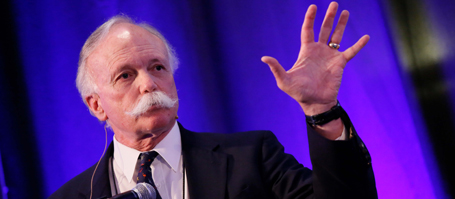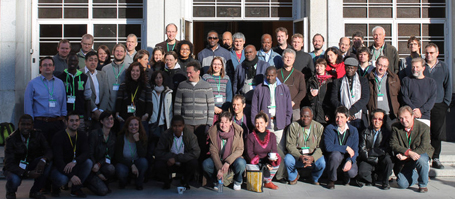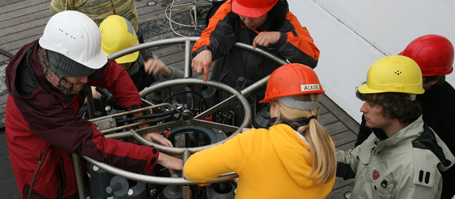What effect does climate change have on coastal regions? And which answers and possibilities does politics offer to introduce and implement adaptation measures in regard to climate change and sea level rise? How are citizens included in coastal protection measures? These are the issues the American marine and social scientist Mike Orbach, Professor for Marine Affairs and Policy at Duke University of North Carolina, raised during the public evening lecture on the 17th of September in the Zoological Museum.
His visit to Kiel is funded by the Cluster of Excellence “The Future Ocean” and is part of the international Summer School “Coastal Hazards”, which expects renowned experts and over 20 young scientists from around the world.
“Environmental policy is always – and only – about social change based on human beliefs, values and perceptions. You are all part of that process, only a small part of which is actually producing science.” (citation from Mike Orbach, Duke University)
In his English language presentation, which is aimed at a general public, “Comparative Policy Response and Adaptation to Climate Change and Sea Level Rise” Mike Orbach focuses on social science methods and approaches to enforcing environmental policies. In doing so he speaks of sustainable environmental management, fisheries, integrated coastal zone management and thus how citizens and the public can be included in environmental policy decisions. As a marine scientist, Mike Orbach studies political reactions and adaptation measures for climate change and sea level rise on the American east coast, in comparison to Europe and Asia. For his research Mike has repeatedly travelled to Germany. Most recently he looked into coastal protection measures and initiatives at Timmendorfer Beach within the framework of a German-American exchange.
Contact:
Friederike Balzereit, Public Outreach
Phone: +49 431-880-3032
fbalzereit@uv.uni-kiel.de
www.futureocean.org
…



